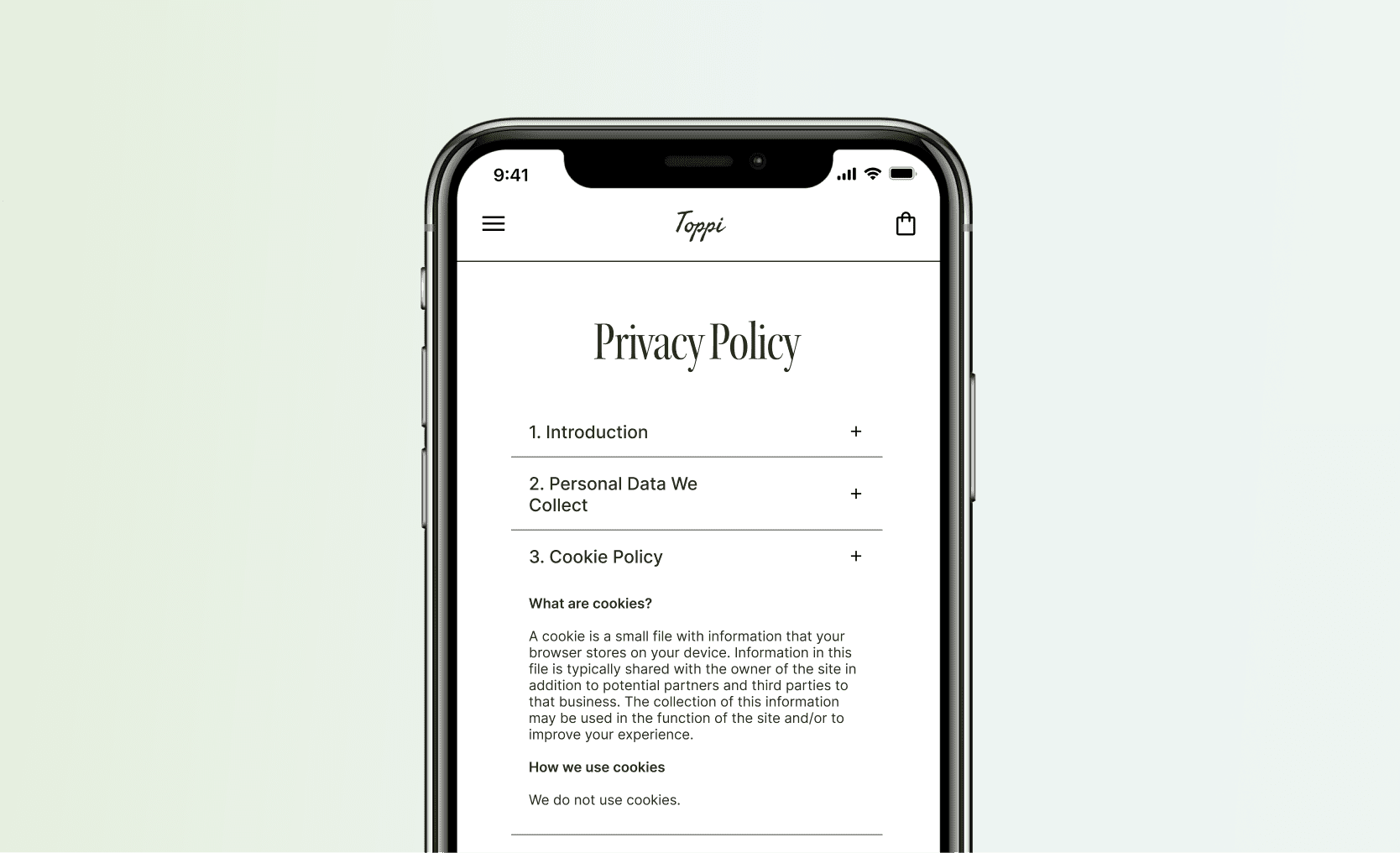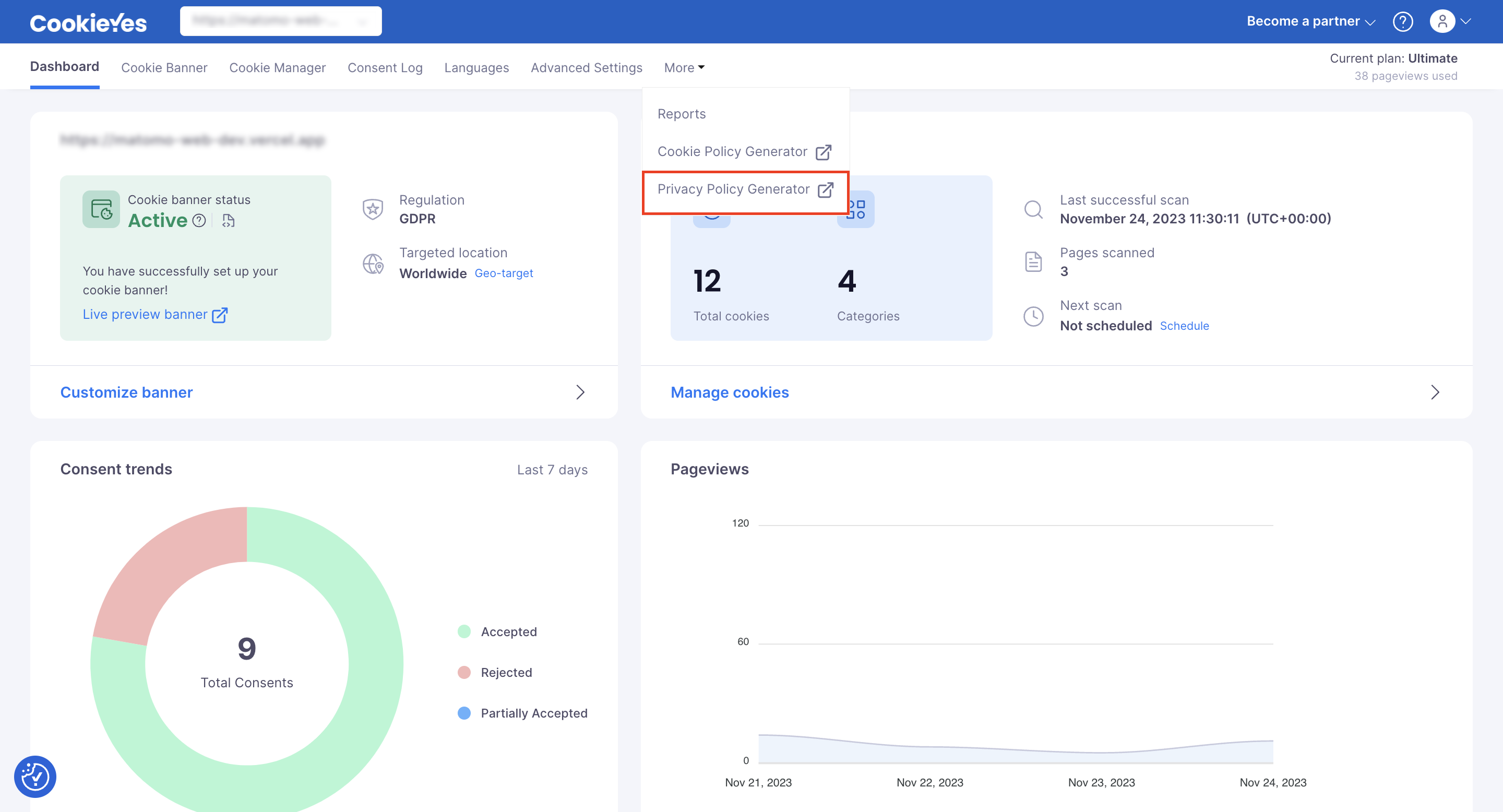A privacy policy is essential for any website. It protects both you and your visitors.
Understanding privacy policies can be tricky, but it’s crucial for compliance and trust. Privacy Policy 2 is the latest version aimed at improving transparency and security. With increasing concerns over data privacy, this updated policy addresses new regulations and user expectations.
It ensures that personal information is handled responsibly, giving users more control over their data. In this blog post, we’ll explore the key elements of Privacy Policy 2, why it’s important for your website, and how it can benefit both you and your visitors. Stay tuned to learn more about this essential update and how it can help maintain trust and legal compliance in the digital age.
Introduction To Privacy Policy 2
Privacy Policy 2 is vital in today’s digital age. It safeguards personal data and builds trust. This policy outlines how organizations collect, use, and protect data. Understanding its importance helps users feel secure. Let’s dive into why data protection matters and how privacy policies have evolved.
Importance Of Data Protection
Data protection is crucial for maintaining user trust. It prevents unauthorized access and misuse of personal information. Good data practices ensure compliance with laws. They also foster customer loyalty. Users feel safe sharing their data when they trust the organization. This trust leads to better user engagement.
Evolution Of Privacy Policies
Privacy policies have evolved significantly over time. Initially, they were simple and few. Now, they are detailed and mandatory. This change responds to growing digital threats. New laws and regulations demand transparency. Companies must now clearly state their data practices. This evolution reflects the need for stronger user protections.
Core Principles
Welcome to the world of Privacy Policy 2! Here, we prioritize your privacy above all else. Our core principles are designed to ensure you feel safe and in control of your personal information. Let’s dive into the essential elements that make our policy stand out.
Transparency
At Privacy Policy 2, transparency is our guiding star. We believe in clear communication. You deserve to know how your data is used. No secrets, no hidden agendas.
- We provide detailed explanations about data collection.
- We explain how your information is stored and protected.
- We are honest about third-party data sharing.
Ever felt lost in the jargon of privacy policies? Trust me, I have. We make our policy easy to understand. Think of it as a conversation with a friend.
User Control
User control is another cornerstone of Privacy Policy 2. You should have the power over your data. It’s yours, after all!
- You can access your data anytime.
- You can update your information.
- You can delete your data if you wish.
Imagine you have a remote control for your data. You decide what to watch, pause, or stop. Sounds empowering, right? That’s exactly what we aim for.
Our commitment to these core principles stems from a simple belief: Your privacy matters. We hope this gives you a clearer picture of what Privacy Policy 2 stands for.
Data Collection Practices
Understanding data collection practices is essential for any website visitor. It ensures transparency and builds trust. This section discusses the types of data collected and the methods used to gather it.
Types Of Data Collected
Websites collect various types of data from users. Personal information includes names, email addresses, and phone numbers. Non-personal data involves browsing patterns, IP addresses, and device information. Some sites also gather demographic details like age, gender, and location. This data helps improve user experience.
Methods Of Data Collection
Websites use multiple methods to collect data. Forms are common for gathering personal information. Users fill out these forms to sign up or make purchases. Cookies track browsing behavior. They store user preferences and login details. Analytics tools monitor site visits and user interactions. These tools provide insights into how visitors use the site.
Data Storage And Security
In today’s digital world, keeping your data safe is very important. You trust companies with your personal information, and they must ensure it is stored securely. Let’s dive into how data storage and security work. We’ll look at encryption techniques and secure storage solutions to help you understand better.
Encryption Techniques
Encryption is like a secret code for your data. It makes sure that only the right people can read it. How does this work?
- Symmetric Encryption: This method uses the same key to lock and unlock data. It’s fast but needs to keep the key very safe.
- Asymmetric Encryption: Here, two different keys are used. One key locks the data, and another key unlocks it. This method is more secure but slower.
Think of encryption as a lock on a treasure chest. Only the person with the right key can open it. So, if hackers try to steal your data, they can’t understand it without the key.
Secure Storage Solutions
Storing data securely means keeping it safe from theft and loss. Companies use different methods to achieve this. Let’s explore some of these solutions:
- Cloud Storage: This is like storing your data in the sky. Companies like Google and Amazon keep your data on their servers. They have strong security measures, like frequent backups and protection against hacking.
- On-Premises Storage: Here, the data is stored on the company’s own servers. They control everything, from the physical security of the servers to the software used to protect the data.
- Hybrid Storage: This is a mix of cloud and on-premises storage. Companies use both methods to get the best of both worlds. They can keep sensitive data on their servers and less sensitive data in the cloud.
Using secure storage solutions is like keeping your valuables in a high-security vault. Even if someone tries to break in, they will have a hard time getting to your data.
| Storage Method | Advantages | Disadvantages |
|---|---|---|
| Cloud Storage | Easy access, strong security, regular backups | Depends on internet, privacy concerns |
| On-Premises Storage | Full control, no internet needed | High cost, maintenance needed |
| Hybrid Storage | Flexible, best of both | Complex management, costs can vary |
In conclusion, understanding data storage and security is like knowing how to keep your home safe. You lock your doors, use a security system, and maybe even have a guard dog. Similarly, companies use encryption and secure storage to protect your data. This way, you can feel confident that your information is safe.
User Rights
Understanding your rights is essential when it comes to the privacy of your data. Have you ever wondered what you can do with your personal information that companies hold? Let’s dive into the essential rights you have under Privacy Policy 2, starting with access to your data and the right to be forgotten. These rights are designed to empower you and give you more control over your personal information.
Access To Data
First and foremost, you have the right to access the data that any company has collected about you. Think of it like checking your bank balance—you need to know what’s there. This right ensures that you can:
- Request a copy of your personal data.
- Understand how your data is being used.
- Check the accuracy of the information.
For instance, if you’ve signed up for an online service, you can ask them to send you a detailed report of the data they have collected. This report will help you see exactly what information they store and how they use it. You might find it surprising how much data is accumulated over time! And if you spot any errors, you can ask for corrections. It’s like having a magnifying glass over your digital footprint.
Right To Be Forgotten
Now, let’s talk about the right to be forgotten. Have you ever wanted to erase your digital past? This right allows you to request the deletion of your personal data from a company’s database. Here’s what it means for you:
- You can ask for your data to be erased if it’s no longer necessary.
- If you withdraw your consent, the company must delete your data.
- If the data is being used unlawfully, you can demand its removal.
Imagine you signed up for a newsletter five years ago, but now you no longer want to receive it. You can contact the company and ask them to delete all your information. This right is like hitting the reset button on your digital presence. It’s particularly useful if you want to reduce your digital footprint or if you’re concerned about privacy.
In summary, these user rights are here to give you control. Whether you want to see what data is out there or you want to erase your online history, you have the power to make it happen. Remember, your data is your property, and you have every right to manage it as you see fit.

Credit: www.enzuzo.com
Third-party Sharing
Ever wondered what happens to your data after you share it with us? It’s like sending a postcard; you hope it reaches the right hands. In this section, we dive into the specifics of third-party sharing. Let’s uncover how and when your data might be shared, and what measures we take to ensure its safety.
When Data Is Shared
Your data is precious, much like grandma’s secret recipe. We don’t just hand it over to anyone. Here’s when we might share it:
- Service Providers: Sometimes, we need help from outside experts, like when you hire a plumber to fix a leak. We share data with trusted service providers to enhance your experience.
- Legal Requirements: If the law says jump, we ask how high. We may share your data to comply with legal obligations.
- Business Transfers: If our company merges or is sold, your data might go along for the ride. But don’t worry, it stays protected.
Choosing Trusted Partners
Choosing who to share your data with is like picking a babysitter. We only pick the best. Here’s what we look for:
| Criteria | Importance |
|---|---|
| Reputation | High |
| Security Measures | Very High |
| Compliance with Laws | Essential |
We vet our partners thoroughly, ensuring they treat your data with the same care we do. Think of it as a rigorous job interview.
In conclusion, your data is in safe hands. Whether it’s deciding when to share or picking partners, we ensure your privacy is a top priority. So, relax and enjoy our services, knowing we’ve got your back.
Compliance And Regulations
When it comes to creating a Privacy Policy, understanding compliance and regulations is crucial. In today’s digital age, various regions have their own laws to protect user data. Ensuring your policy aligns with these can save you from legal troubles and build trust with your users. Let’s dive into some of the key regulations you need to be aware of.
Gdpr
The General Data Protection Regulation (GDPR) is a law from the European Union. Its main aim is to give EU citizens more control over their personal data. If you collect data from anyone in the EU, you need to comply with GDPR. Here are some key points:
- Consent: You must get clear permission before collecting personal data.
- Data Access: Users have the right to access their data.
- Data Deletion: Users can request their data to be deleted.
Following GDPR not only keeps you out of trouble but also shows your users that you respect their privacy. And who doesn’t appreciate that?
Ccpa
The California Consumer Privacy Act (CCPA) is another important regulation, but this one is from the United States. It aims to give California residents more control over their personal data. If you do business in California or collect data from its residents, you need to know about CCPA. Here are its key aspects:
- Disclosure: Inform users about the data you collect and how you use it.
- Opt-Out: Allow users to opt-out of data selling.
- Access and Deletion: Similar to GDPR, users can access and request deletion of their data.
Like GDPR, complying with CCPA is not just about avoiding fines. It’s about building trust and showing you care about your users’ privacy. After all, happy users mean a happy business, right?
Understanding and following these regulations might seem like a lot of work, but it’s worth it. Not only do you protect your business, but you also show your users that their privacy matters to you. And in today’s world, that’s a big deal!

Credit: www.cookieyes.com
Future Of Privacy Policies
The future of privacy policies is evolving rapidly. With the rise of digital interactions, privacy policies must adapt. They need to address new technological advancements and legal requirements. It is crucial to understand how these factors shape future privacy policies.
Technological Advancements
Technology changes fast. It impacts how privacy policies are written. Companies use new tools like AI and big data. These tools collect and analyze vast amounts of personal data. Privacy policies must reflect these technologies. They should explain how data is collected and used. Transparency helps build trust with users.
Evolving Legal Landscape
Privacy laws are also changing. Governments around the world update regulations frequently. Policies like GDPR and CCPA set high standards. Companies must comply with these regulations. They need to stay informed about legal changes. This ensures their privacy policies remain up-to-date and compliant.

Credit: juro.com
Frequently Asked Questions
What Is The Privacy Policy Of Q2?
Q2’s privacy policy safeguards user data, ensuring confidentiality and security. They do not share personal information without consent.
Can You Opt Out Of Google Data Collection?
Yes, you can opt out of Google data collection. Adjust your privacy settings on Google account and browser. Use tools like Google Dashboard and Ads Settings.
What Happens If You Accept A Privacy Policy?
You agree to share your data with the company. They can collect, store, and use your information as outlined.
What Is The Privacy Policy Of Second Nature?
Second Nature’s privacy policy ensures the protection of your personal data. They do not share your information without consent. The policy includes data collection, usage, and security measures. Visit their website for detailed information.
Conclusion
Respecting your privacy is our priority. We aim to protect your personal data. Our updated privacy policy reflects this commitment. We made it clearer and easier to understand. Your trust is important to us. We work to keep your information safe.
Stay informed about how we handle your data. Thank you for being part of our community. Feel secure while using our services. We appreciate your support and trust.






